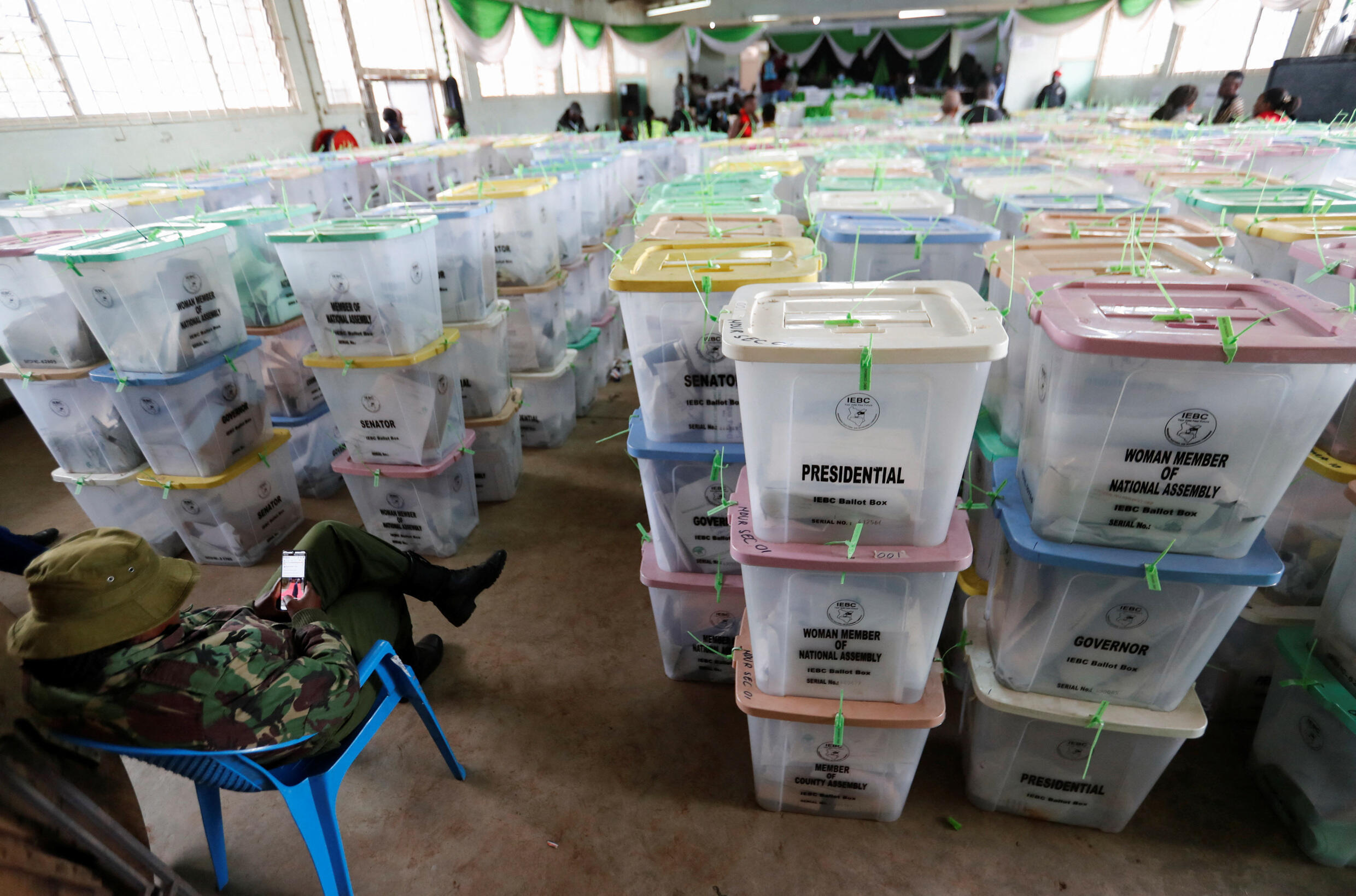Raila Odinga, the former prime minister of Kenya and candidate in the presidential elections on August 9, filed an appeal on Monday, August 22, to challenge the results that, according to the Electoral Commission, gave victory to William Ruto. The lawsuit sharpens a political clash that in recent weeks has gripped what is considered the nation with the most stable democracy in East Africa.
The legal dispute over the presidential elections on August 9 in Kenya is officially opened.
Raila Odinga, the opposition leader who was defeated in the elections, appealed the results this Monday, August 22, before the country’s Supreme Court.
Odinga arrived at the courthouse to applause and helped to install the boxes of material for the petition, after having described the counting of the vote as a “parody”. According to the Electoral Commission, the vice president of the previous government, William Ruto, became the elected president in a close election that gave him 50.49% of the vote, compared to 48.5% for Odinga.
“We have filed the lawsuit electronically (…) while we wait for the physical documents so that the court can verify,” confirmed Daniel Maanzo, the lawyer for the former prime minister who has tried five consecutive times to reach the local media. The presidency.
What’s next in the process? The case will be heard by the Supreme Court, made up of seven members. Then, the high court will hold a state conference with all the parties involved to define the hearing schedule and ground rules.
The country’s Constitution stipulates that judges issue their decision within 14 days of filing the lawsuit.
Due to the tight schedule, he normally delivers a summary judgment within that time frame, followed by more comprehensive decisions by each of the seven justices at a later date.
Kenya faces possibility of Supreme Court ordering new elections
The path for William Rutto to consolidate himself as the new president of the nation becomes complex.
This time, the five-time presidential candidate is backed by the political establishment. In a surprise turn before the elections, the outgoing head of state, Uhuru Kenyatta, supported Odinga’s candidacy instead of his own vice president, after internal disputes.
The case is in the hands of the Supreme Court, whose president, Martha Koome, was appointed by Kenyatta, making her the first woman in office.

Also, this would not be the first time the court has overruled the results. In 2017, also after Odinga’s rebuttal, the court reversed the electoral count, citing anomalies in the voting process.
A similar situation occurred a decade earlier, leading to an outbreak of violence that left 1,200 people dead. But on that occasion, Mwai Kibaki was finally declared president, despite Odinga’s claim that he was the one who won the election. A broad international consensus pointed out that these elections were partially manipulated.
In the event that the Supreme Court annuls the results this 2022, it would order new elections, which could deepen political clashes in Kenya, a nation with a past of post-election violence, but which in recent years has been considered the most stable democracy in Africa. Oriental.
The electoral dispute
The elections that took place peacefully became chaotic in the final minutes and before the declaration of the Electoral Commission, which delivered the results on August 15.
The vote was seen as the most transparent in the country, with electoral authorities publishing more than 46,000 results forms online from polling stations so anyone could do the math for themselves.
But confusion reigned over the count after they suspended a recount of 46,229 results at polling stations with around 80% of the votes counted.
The electoral body’s website still does not display the correct forms for all 291 constituencies. In some cases, the document is incomplete or partially uploaded, making it impossible for the public to confirm the commission’s count.

Subsequently, and minutes before the final results were released, four of the seven electoral commissioners, including the deputy president, Juliana Cherera, indicated that they did not support the figures.
Cherera assured that the elections were carried out properly, but that the results were added in an erroneous way.
According to his version, the president’s final numbers added up to 100.01% and the excess of votes would have made a “significant difference.”
This is probably the 77-year-old Odinga’s last bid for the presidency.
Control of the nation with the largest economy in East Africa is at stake, although it contrasts with the high levels of poverty of the population. Kenya is home to the regional headquarters of companies such as General Electric, Google and Uber.
The African nation also provides peacekeepers for neighboring Somalia and frequently hosts peace talks for other nations in the troubled region of the continent.
With Reuters, AP and EFE







![[Img #74664]](https://thelatestnews.world/wp-content/uploads/2024/12/James-Watson-The-controversial-genius-behind-the-double-helix-150x150.jpg)






Add Comment